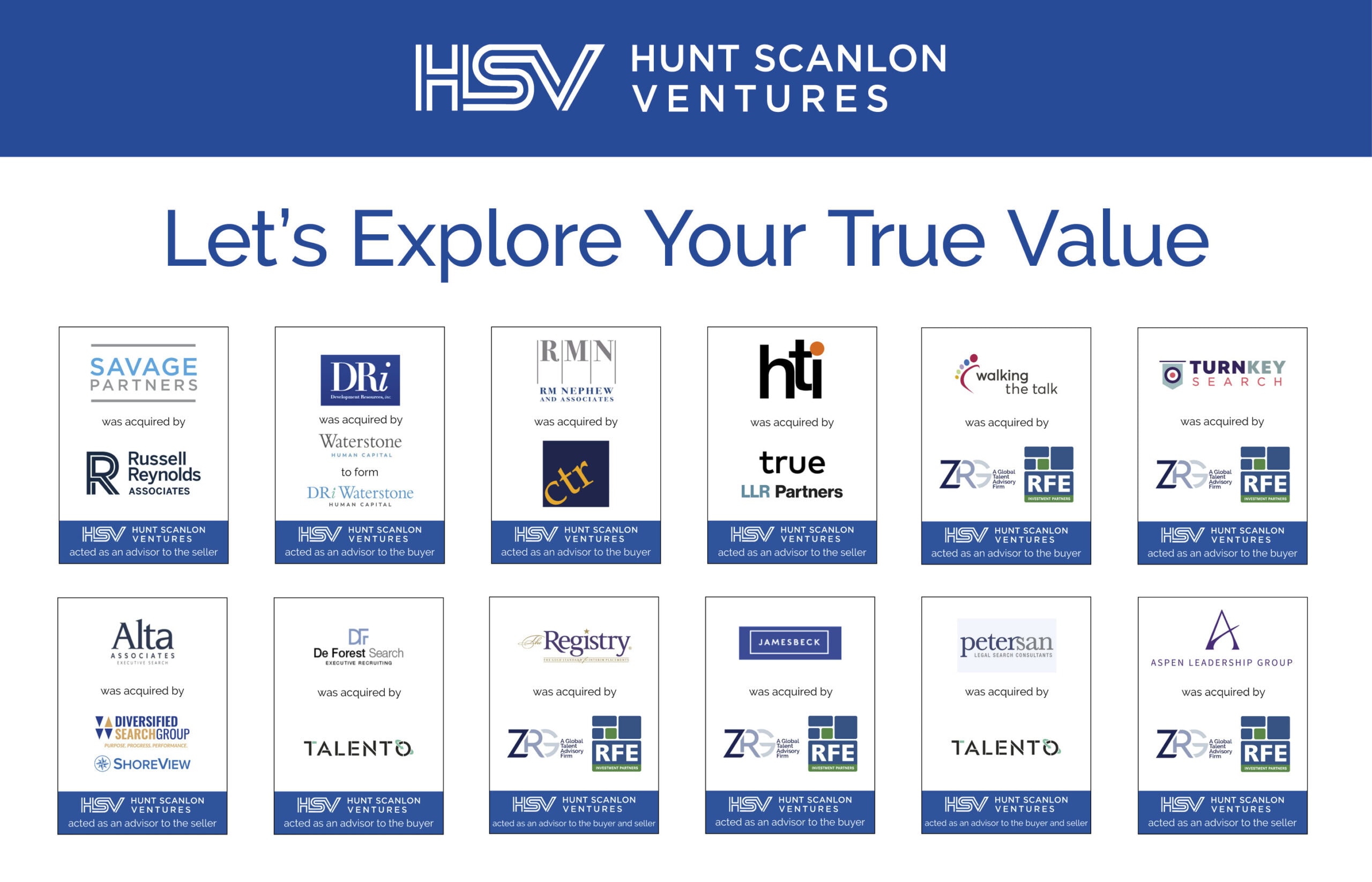Leadership is the key to sustained value creation. But according to AlixPartners, the PE industry is not taking steps to produce sustained leadership excellence. Hunt Scanlon Ventures managing director, Drew Seaman, takes a look at why PE still manages talent in transactional ways.
Participants in the ninth annual PE leadership survey conducted by AlixPartners generally agree that the most important thing they can do to achieve the financial results they demand is to pay attention to leadership and talent.
For PE firms, which prioritize C-suite leadership, and portcos, which emphasize talent at all levels, “the quality of leadership and succession planning are three times as important as portfolio rationalization, almost four times more important than cybersecurity, and almost twice as important as the hottest topic in management today: making and monetizing investments in artificial intelligence,” concluded the firm’s ‘Leadership and the Future of Value Creation’ report.
According to the just-released study, while both PE and portco leaders recognize the value of leadership and talent, “they have not done enough to institutionalize leadership development and strengthen talent management.” As a result, the firm said, “PE firms are churning through portco leadership at a rate that hurts value creation while they and their portcos are underinvesting in the capabilities that would reduce churn and produce better leaders.”
“Sustained leadership excellence and talent development practices are critical components in managing change,” said Clark Perry, partner, transformative leadership at AlixPartners.
Fixing Misalignments
“Today, the PE industry manages talent in transactional ways,” he noted. “There is a critical need for PE firms and portcos to work together to develop stronger change capabilities – tactically and strategically, technically, and culturally,” he said. Significant areas of misalignment between PE firms and portcos, he added, “create conflicting leadership agendas that could derail value-creation plans.”
“The PE industry manages talent in transactional ways. Significant areas of misalignment create conflicting leadership agendas that could derail value creation plans.”
AlixPartners noted six kinds of actions that together can elevate leadership practices with an eye specifically on quickly increasing enterprise value.
1. Ensure that leadership is a strategic priority for both investors and portcos. ‘Leaders across the industry agree that deep leadership capabilities are essential to create value in today’s PE industry, with its longer hold times and more-complex deals such as rollups. But a strategic priority must be given a prominent place in discussions and processes.’
2. Make certain that the role of leadership is explicitly documented in the deal thesis. ‘Often, a deal thesis envisions changes – for example, significant scaling, international expansion, or inorganic growth – that cannot be accomplished without parallel growth in leadership depth and breadth. Those investments cannot be left implicit. A deal thesis should begin with the end in mind. And then ask, “What will our leadership and human capital capabilities look like when the time comes to exit – and, given that, where do we begin today?”’
3. Deliver regular metrics on human capital progress. ‘If human capital is part of the deal thesis, then there should be key performance indicators, reports, and discussions as parts of routine communication between owners and managers. And if the PE firm doesn’t insist on such reporting, then portco management should provide it anyway, including regular discussions of succession planning and leadership development.’
“If human capital is part of the deal thesis, then there should be key performance indicators, reports, and discussions as parts of routine communication between owners and managers.”
4. Hire and empower a human capital partner for the PE firm. ‘Many large PE firms now have an executive who is responsible for the firm’s and portcos’ leadership. The practice should be universal; and the job description should include more than providing assessments of target-company executives or potential new hires; human capital partners should help operating partners and portcos identify their talent issues and offer expert guidance as they develop their own HR processes.’
5. Leverage learning and talent at the PE firm level. ‘Most PE firms approach portfolio companies with an every-tub-on-its-bottom philosophy, believing that each portco should be responsible for its own organization and not wanting to create expensive infrastructure at the firm level. Even so, within that philosophy, firms can help portco leadership improve. For example, they can push the portco to have the best available CHRO talent in the people leadership role; they can act as catalysts to help source and develop talent in emerging technical areas such as AI and analytics; and, through their human capital partners, operating partners can provide expert guidance for portcos about key talent processes like succession planning.’
6. Develop talent playbooks at the portco level. ‘Although 43% of portco leaders see their chief human resources officers as strategic partners, 53% see them as something less. A talent playbook – one that covers processes for assessment and recruitment, development and succession planning, performance management and incentives can help HR leaders scale the maturity model from transactional HR to value-adding activities, to true strategic partnership.’
Access the full report.
Article By

Drew Seaman
Drew Seaman is a Managing Director at Hunt Scanlon Ventures. He is responsible for co-managing the firm’s investment portfolio of executive search, talent acquisition, private equity, and investment firms. In addition to sourcing new opportunities and managing the firm’s current investments, Drew leads the technical aspects of client engagements, including valuation and financial analysis and the preparation of investment marketing materials.
Drew began his career in wealth management before joining BMO Capital Markets as an Investment Banking Associate in the Financial Institutions Group. Drew assisted with transaction execution and prepared comprehensive valuation and financial analyses for clients in the specialty finance, asset and wealth management, and insurance sectors.
Drew earned a B.A. in Economics from DePauw University, where he was quarterback on the varsity football team. He earned his M.B.A. with concentrations in Finance and Accounting from NYU’s Stern School of Business. Connect with Drew.





